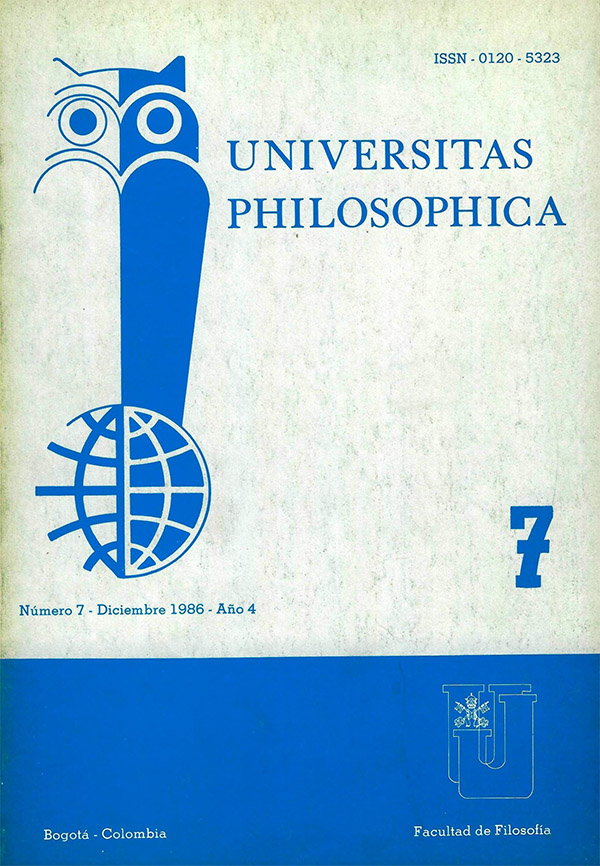Abstract
Con motivo de los veinte años de la aparición de Cien Años de Soledad de Gabriel García Márquez, ofrezco estas reflexiones en torno al realismo fantástico latinoamericano a los lectores de Universitas Philosophica. En las mismas, sostengo la tesis, tomando como base las ideas estéticas de Xavier Zubiri, que el arte de novelar o poetizar no tiene como función primaria la de entretener con sus bellas mentiras (que tanto se parecen a la realidad), sino la de expresar la realidad a través de "fictos"y dar razón de la realidad en profundidad. Existe," pues, un logos y una racionalidad poética, distinta de la conceptual, científica o filosófica; fantástica, por supuesto, pero no por ello menos lógica y racional. En la segunda parte, analizo los tres modos distintos de novelar y poetizar: por oposición, porexageración y por transfiguración de la realidad, tal como se dan en la narrativa latinoamericana, especialmente en Cien años de Soledad. Concluyo que nuestra manera peculiar e irreductible de novelar y poetizar no se debe a que dispongamos de un tipo de racionalidad distinta, por ejemplo de la sueca, sino a la realidad misma que novelamos y poetizamos, que necesariamente cualifica el quehacer literario con especificaciones propias raizales.
This journal is registered under a Creative Commons Attribution 4.0 International Public License. Thus, this work may be reproduced, distributed, and publicly shared in digital format, as long as the names of the authors and Pontificia Universidad Javeriana are acknowledged. Others are allowed to quote, adapt, transform, auto-archive, republish, and create based on this material, for any purpose (even commercial ones), provided the authorship is duly acknowledged, a link to the original work is provided, and it is specified if changes have been made. Pontificia Universidad Javeriana does not hold the rights of published works and the authors are solely responsible for the contents of their works; they keep the moral, intellectual, privacy, and publicity rights.
Approving the intervention of the work (review, copy-editing, translation, layout) and the following outreach, are granted through an use license and not through an assignment of rights. This means the journal and Pontificia Universidad Javeriana cannot be held responsible for any ethical malpractice by the authors. As a consequence of the protection granted by the use license, the journal is not required to publish recantations or modify information already published, unless the errata stems from the editorial management process. Publishing contents in this journal does not generate royalties for contributors.


